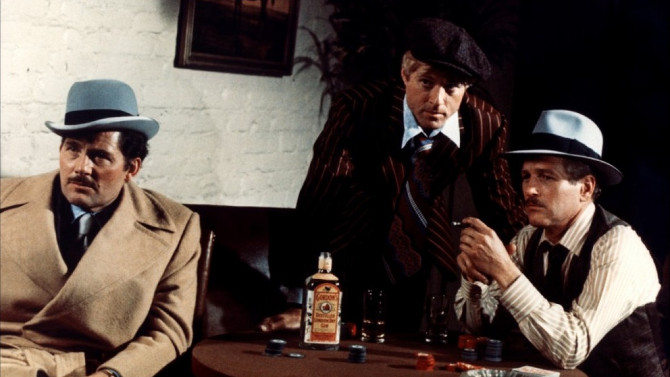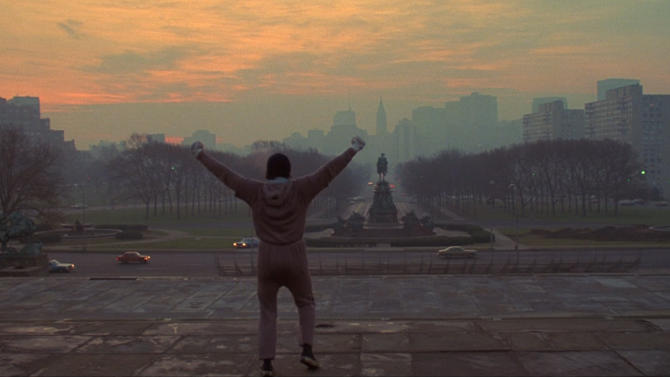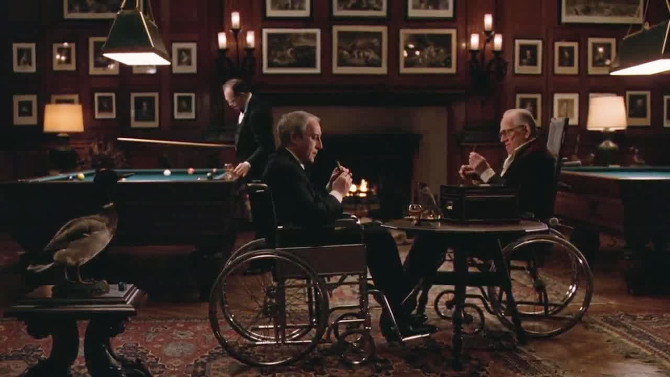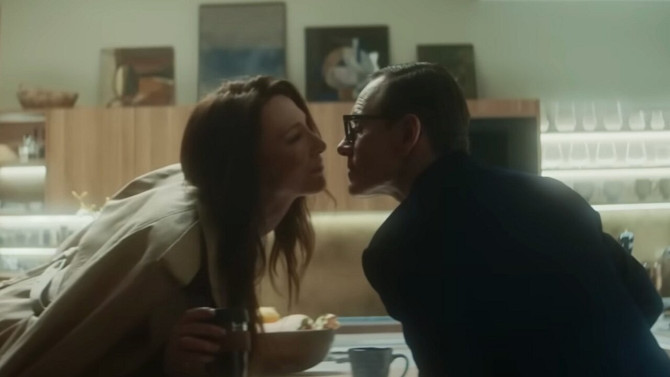
An Attaché Case
In 2025, dare I say that it’s nice to be highlighting a film made for mature audiences. Avoiding the pratfalls of sequels, remakes, comic book movies, and overly costly bombast, Black Bag, written by David Koepp (Mission: Impossible) and directed by Steven Soderbergh (Traffic), is most easily described as an old school spycraft feature. Opening with an extended tracking shot of spy George Woodhouse (Michael Fassbender) making his way through a happening nightclub in London, his contact soon informs him that there is a rat leaking some sort of tech software named Severus from within the agency. If there is one thing Woodhouse despises, it’s a liar, so he invites all of the suspects to a dinner party to try to get to the bottom of it.
-
Star Pick with David Ebeltoft
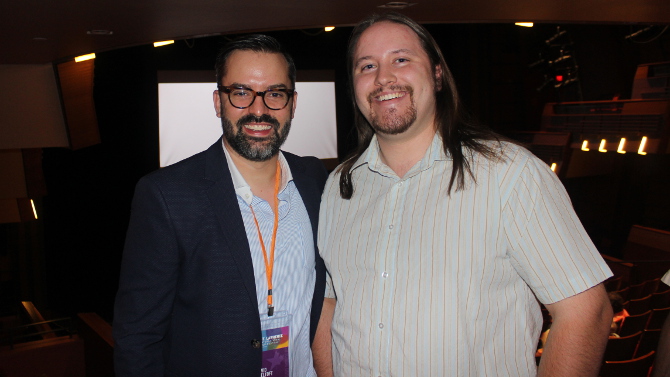 A Buzzworthy ProductionThe StingApril 18, 2017
A Buzzworthy ProductionThe StingApril 18, 2017Whether you’ve seen The Sting or not, it is nearly impossible not to recognize its main theme, titled "The Entertainer". A feel good, catchy, ragtime tune that is heard on and off from very beginning to utter end, it is Marvin Hamlisch’s reworking of the 1902 song by Scott Joplin that adds an auditory flair to the piece. It is this classic cinematic work that screenwriter David Ebeltoft, scribe of the Tribeca Audience Award Winner Here Alone, highlights as being his favourite. An up and coming writer in the business, his union with director Rod Blackhurst and producer Noah Lang (who was featured in last week’s Star Pick) seems like it is going to be a fruitful one, as the film making team have already announced two more features, You Were Once Called Queen City and North, following their first united effort – which has just been released and is doing very well in both theatres and online.
-
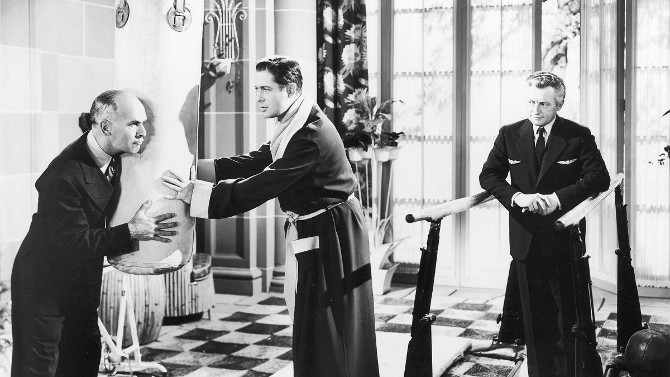
Air Jordan
Here Comes Mr. JordanApril 9, 2017There may be no film with a more influential pedigree that is lesser known than the fantastical 1941 romantic dramedy Here Comes Mr. Jordan. Honoured with a sort-of-sequel (1947's Down to Earth – starring Rita Hayworth, it also features reprisals from actors James Gleason and Edward Everett Horton. . . which itself inspired the 1980 feature Xanadu), it was also remade by Warren Beatty in 1978 – titled Heaven Can Wait. Chris Rock had a go with the subject matter in 2001 with his version, Down to Earth – reusing the title from the original sequel. In 1968, it was even remade in India – Jhuk Gaya Aasman – English translation: The Skies Have Bowed. At one point, even Bill Cosby tried to get a version of the story produced – though this iteration fell through. The intensely bitter and sweet tale of a boxer who gets in a plane crash, which is followed by a mistake in Heaven, it can also be seen as the precursor and inspiration for motion pictures like A Guy Named Joe (1943), It’s A Wonderful Life (1946), A Matter of Life or Death (1946), The Ghost and Mrs. Muir (1947), as well as so many others. Mashing together a multitude of genres which I will explain later, the boxer, Joe Pendleton (Robert Montgomery), who is soon to be competing for the world title, is gearing up for his next big bout. Trained by his loyal manager, Max Corkle (James Gleason), the two argue over the fact that he wants to fly himself to his next fight in New York City. Unable to convince the genial but stubborn athlete, it is soon after that he plummets to his ‘supposed’ death.
-
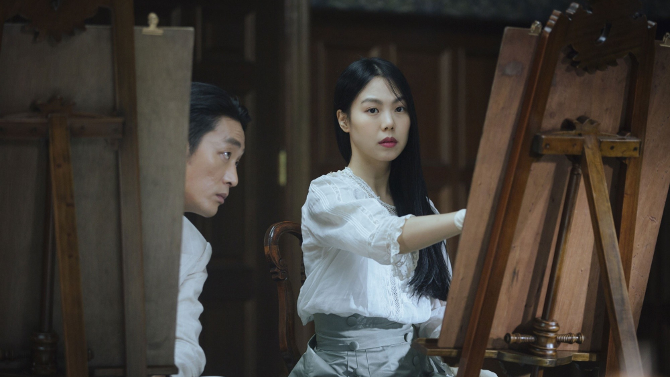
The Handmaiden’s Tale
The HandmaidenMarch 31, 2017Director Chan-wook Park, a visual mastermind who concocted the intoxicating Stoker in 2013 (a loose remake of Alfred Hitchcock’s superb Shadow of a Doubt), his first, and to date, only English language film, follows it by putting his talents into making another striking, intricately plotted psychological mystery/thriller in The Handmaiden. Loosely based upon Sarah Waters’ novel "Fingersmith", the filmmaker moves the tale from Victorian era England to 1930s Korea – which is under Japanese colonial rule. Divided into three parts, he utilizes the technique to great effect, providing us with only part of the story each time. In many ways it’s like being given a puzzle with only the edges to start with, so we think we understand what is going on, as we have been given the outline, but only truly gain a stronger appreciation of its complexity and beauty when provided with the pieces that fill in the whole picture. Park’s unique style slowly divulges the true essence of this film by providing alternate angles, different perspectives, flashbacks and flash forwards (those essential remaining puzzle pieces).
-
Star Pick with Doug MacLeod
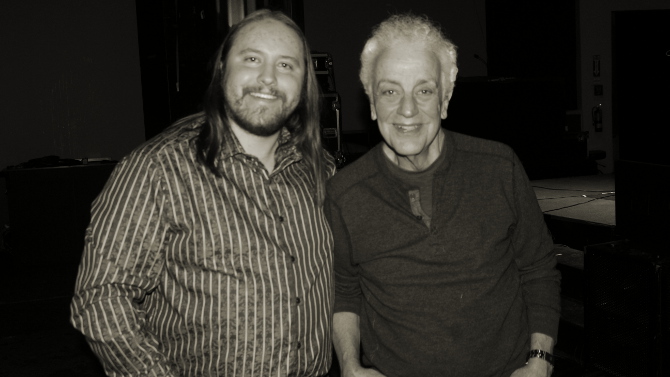 Beating the BluesRockyMarch 28, 2017
Beating the BluesRockyMarch 28, 2017Recently, I was fortunate enough to sit down with blues legend Doug MacLeod. A one man show, the acoustic maestro does it all while on stage; not only does he sing, play the guitar and stomp, but he also throws out important life lessons, tells jokes, and regales his audience with engaging stories – making him just as much a philosopher (see him live to learn of his bucket theory), storyteller, motivational speaker and stand-up comedian (though as the blues man quite cleverly pointed out, he is actually a sit-down comic – as he performs while seated). The winner of countless awards for his craft, the last few years should provide you with a good idea of his pedigree: in 2013, he took home Male Blues Artist of the Year at the Blues Blast Music Awards. Then in 2014, MacLeod won both Acoustic Artist and Acoustic Album of the Year at the Blues Music Awards, once again claiming the top prize of Acoustic Artist of the Year in 2016. This year, he has been honored with a nomination for his most recent album "Doug MacLeod – Live in Europe" – which is up for Best Historical Album, while also looking for a third win in the Acoustic Artist category. He has released an impressive 24 albums over the past thirty plus years.
-

Not Your Everyday Mechanic
The MechanicMarch 5, 2017Alfred Hitchcock once said "if it’s a good movie, the sound could go off and the audience would still have a perfectly clear idea of what was going on". A perfect example of this is the first sixteen minutes of the 1972 action film The Mechanic. Directed by Michael Winner and starring Charles Bronson (the pair, who had made one film previously, would go on to make a total of six together), the plot follows an aging hit-man in Los Angeles. The opening sixteen minutes is a masterclass in patience, restraint and telling a visual story, without any dialogue. We watch as the man, named Arthur Bishop, intricately plans his next kill. No dialogue is needed to make this an effective scene, as it captures a tense atmosphere and places us in the mind set of our lead, as we now know that he has a deft touch at killing and is not to be messed with. It is a bold choice to open a movie and it is all the richer for it.
-
Star Pick with Hayley Atwell
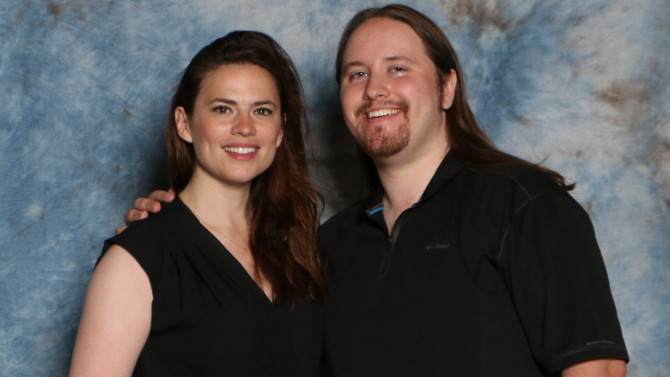 Garden State of MindBeing ThereFebruary 14, 2017
Garden State of MindBeing ThereFebruary 14, 2017Perhaps more relevant today than it was when it was released, Hal Ashby’s 1979 feature film Being There, based on Jerzy Kosinski’s 1970 novel of the same name (he also wrote the screenplay), speaks to the fickleness of fame – how, by random happenstance, one can be projected into a position of power and ‘celebrity’. Some time back, I spoke to actress Hayley Atwell. A major player in the Marvel universe, she has starred as Peggy Carter in four films, including Captain America: The First Avenger and its 2014 sequel. This spawned the critically acclaimed series Agent Carter, which sadly got cancelled after two seasons. Currently starring on the ABC show Conviction, the British star has also appeared in excellent smaller movies like 2012's The Sweeney and 2008's The Duchess, as well as the entertaining mini-series The Pillars of the Earth. When I posed my favourite question to her (i.e. her favourite film), she had two prompt responses. Speaking of her love of Bette Davis, it is fitting that one of her top films was All About Eve, mostly due to the superb performance from the iconic actress. Secondly, she spoke of the above mentioned Being There. Stating that she loved the book, she originally knew nothing about there being a movie. When she finally saw it, like the novel, it stuck with her, including Peter Sellers’ amazing portrayal as the lead character, making it one of her all-time favourites.

